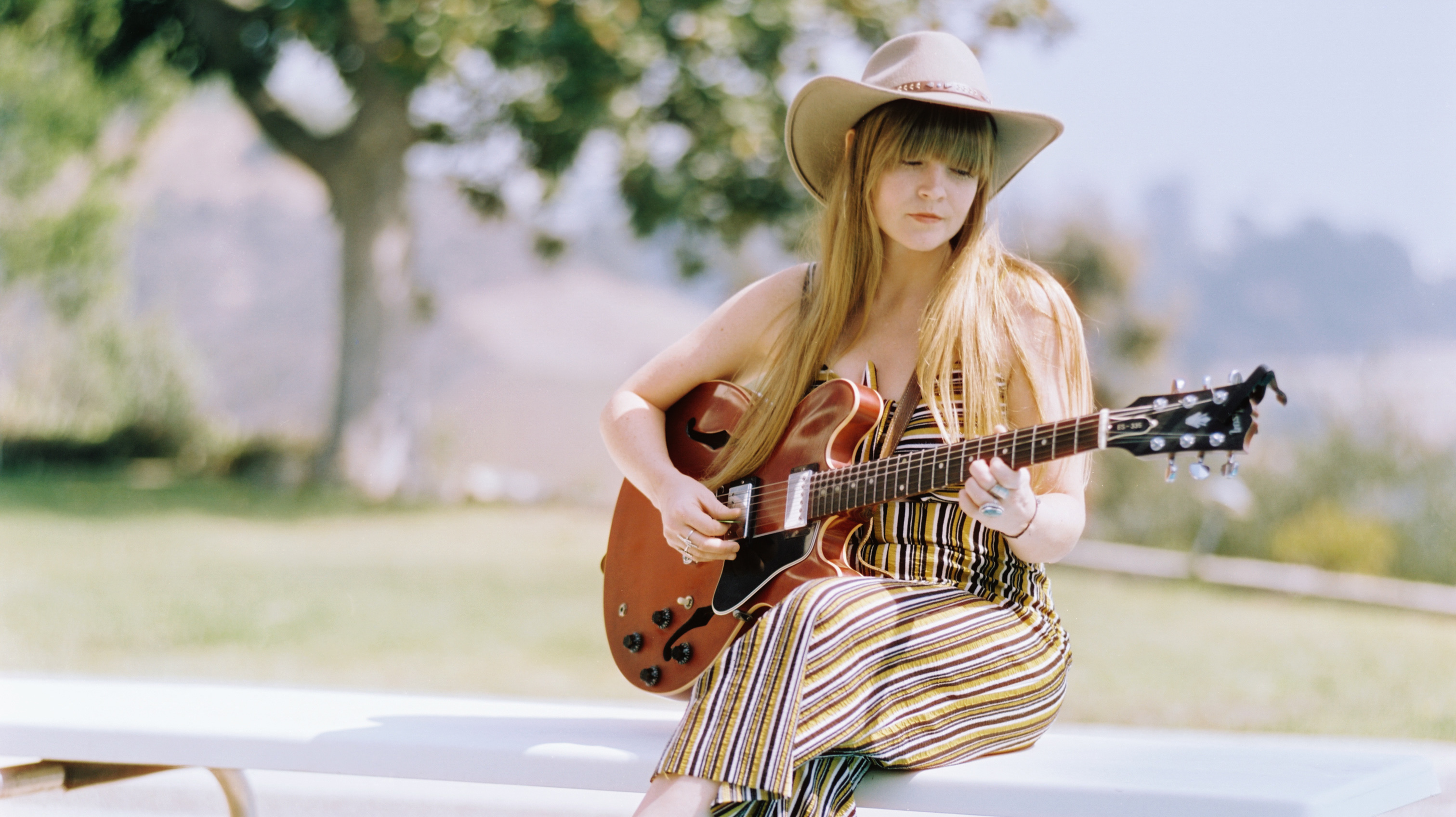BACKSTORY: A punk-turned-country-artist who has yet to lose her edge
FROM: Phoenix, Arizona, before moving to Seattle
YOU MIGHT KNOW HER FROM: Backing Damien Jurado and Jimmy Eat World on tour in a past life
NOW: Touring her sixth studio album, May Your Kindness Remain, out now via Fat Possum
There is a certain inevitability in punks turning to country music. A ragged copy of Cash: The Autobiography resting opposite a chain wallet in black denim. Bobbie Gentry’s Ode to Billie Joe next to Bikini Kill’s Pussy Whipped in the Case Logic (or playlists, these days). A regrettable enthusiasm for Mike Ness’s Under the Influences, if you’re me.
“I listen to that stuff now and I’m like, ‘Jesus! Wow, I was feeling a lot during that time,’” Courtney Marie Andrews says of her time as a teenage punker. “Folk and country offer tidbits of all those emotions, but they reflect a wisening.” We agree that one’s psyche can’t run at 120 decibels for too long—that at a certain point, we must accept a range of emotional decibels. There’s also the maturity that comes with the passing of time. “Now I have a better, more worldly perspective,” she adds. “I can see things for what they are more, and not as this magnified thing.”
“I’m not religious, so kindness is the gospel for me.”
The twenty-seven-year-old Phoenix-born musician has just released her sixth full-length album. May Your Kindness Remain is a folk record awash in gospel music’s jubilance—a testament to her faith in humanity. “I’m not religious, so kindness is the gospel for me,” she says. Its flourishes are inspired by the sonic touchstones of her favorite records from the 1970s, like Dixie Chicken by Little Feat, which features equal parts guitar twang, murky bass, and sky-high harmonies. There are sweeping meta-narratives commensurate with life on the road, and direct takedowns of injustices she witnessed as a youth in Maricopa County.
“Border” is an empathetic tale of an immigrant trying to make it in America, inspired by the bigoted actions of former Arizona Sheriff Joe Arpaio. “The story is so embedded in me,” she says. “I worked right next to his office. There were constant protests against him.” The album’s ten songs emanate a timelessness wholly unique to Andrews, a songwriter whose last two albums have expressed an innate and holistic understanding of cosmic absurdity mixed in with universal truths via gospel music’s chord progressions and a boxcar poet’s observations. Hippies might call her an empath. Others, attuned.
Before she was a solo artist, she was in a feminist punk group called Massacre in a Miniskirt. Before she assembled hand-picked session players for her own albums, she briefly served as a member of Jimmy Eat World. “I can still play some of those songs,” she says, laughing, when I mention one of my enduring emo guilty pleasures: her former bandmates’ 1999 album Clarity. “When I was a kid, I loved Taking Back Sunday,” she says. “But Bright Eyes was my saving grace.”
Bright Eyes’ Fevers and Mirrors in particular was a bridge many walked to get from punk’s electric chugs to folk’s acoustic hugs. Andrews posits that both genres offer a distinctly passionate spirit and community—something most people seek in their formative years. And though her work has progressed to the full-blown form of emotion, at her core, like so many of us, she remains a punk. FL
This article appears in FLOOD 8. You can download or purchase the magazine here.







